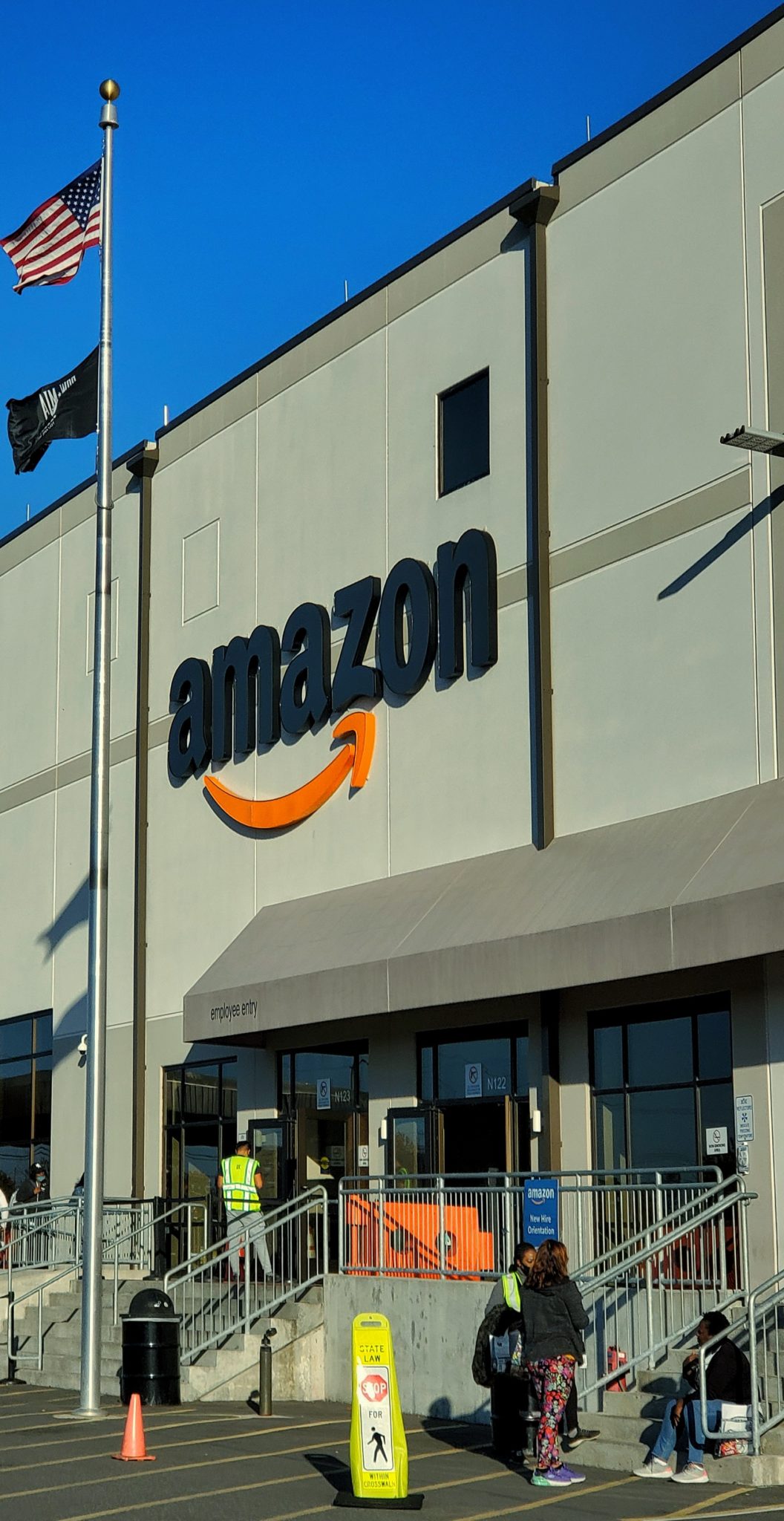
Kevin Vazquez is a staff attorney at the International Brotherhood of Teamsters. He graduated from Harvard Law School in 2023. The opinions he expresses on this blog are his own and should not be attributed to the IBT.
On Friday, the National Labor Relations Board rejected Amazon’s attempt to delay a unionization vote in its Bessemer, Alabama warehouse. Amazon, in a formal request issued last month, asked the Board to postpone the vote to further consider the company’s proposal to conduct the election in person, citing fears of fraudulent voting – despite an outbreak of Covid-19 in the area. The NLRB, in a statement issued by the Board’s two Republican members, denied the request, saying that the public interest would be best served “by avoiding the type of in-person gatherings that a manual election entails.”
The election will continue as planned, and the NLRB will mail ballots, which must be returned by the end of March, to the warehouse’s nearly 6,000 workers next week. The Alabama workers are seeking to join the Retail, Wholesale and Department Store Union in an unexpected union drive that has rapidly become the largest – and most promising – effort to unionize Amazon in years, and the first that has made it this far since the failed 2014 effort in Middletown, Delaware. Few would have anticipated a viable union drive – which could result in the first unionized Amazon warehouse in the United States – to take hold in the heart of Alabama, a right-to-work state in the deep South, which is notoriously hostile to labor organizing with a union density below the dismal national average. Looked at from another perspective, however, it is not so surprising that workers in Bessemer, a struggling post-industrial city with high levels of unemployment and poverty and low capital investment, are receptive to labor organizing – particularly in the context of a rampant pandemic that local and state authorities have failed to contain. It is, of course, unclear if the workers will ultimately vote to unionize (though union officials are optimistic), but, in any event, the campaign further illustrates the inroads organized labor has made during the pandemic and the possibilities that it could have with Amazon and other service workers in the future.
Amazon has grown into a veritable behemoth during the pandemic, adding more than 400,000 warehouse and delivery workers to its staff last year, and it is on pace to surpass Walmart as the country’s largest private employer within a few years. It has a long and well-documented history of workplace abuses, poor working conditions, and illegal labor practices. A successful union campaign could incite a flurry of organizing activity and spread rapidly to its other warehouses. Other unions, such as the AFL-CIO, are providing support and strategic guidance to the RWDSU, and a handful of Democratic politicians, like Bernie Sanders, who sent 40 pizzas to a pro-union rally in Bessemer on Sunday, have also offered their support.
In response to the unionization campaign, Amazon representatives have begun to recite a familiar refrain of anti-union propaganda, including a website (DoItWithoutDues.com), posters in the bathrooms, text messages to workers, and mandatory anti-union meetings. Amazon’s fervent anti-union stance, while not particularly surprising, is made more interesting in the context of last year’s visible racial justice movements, which Amazon purported to enthusiastically support, and the racial composition of its Bessemer warehouse. It raises interesting questions about the relationship between racial justice and economic justice generally – and the racial justice movement and labor movement more specifically.
According to the 2010 Census, more than 70 percent of Bessemer’s residents are African American, and most of the Amazon warehouse workers are Black. It is certainly interesting to watch Amazon, a vocal supporter of the Black Lives Matter movement, clumsily attempt to countenance its ostensible commitment to racial justice with its dependence on the continued exploitation of workers who, in this instance, are predominantly Black. It appears that Amazon’s support for racial justice does not extend to support for higher wages, better job security, greater workplace protections, or more dignity and respect at work for its African American employees. Amazon’s belief in racial justice evidently ends where its bottom line begins, and this clear hypocrisy lends support to the view espoused by many activists that Amazon and similar companies are disingenuously utilizing the racial justice movement to position themselves as progressive advocates for social change while, in reality, directly contributing to – and materially benefiting from – many forms of racial oppression.
In Amazon’s eyes, there is apparently no contradiction between the contentions that Black lives matter on the one hand and that the majority-Black workforce in its Bessemer warehouse should not be afforded the protections and benefits of a union, which will, among many other things, help to protect them from the unchecked spread of a deadly virus that has already infected almost 20,000 Amazon workers in the United States, on the other. It is certainly an interesting position to maintain, and it raises difficult questions about what the relationship is between racial justice and economic justice – and what it should be.
In other news, President Biden said on Saturday that his proposal to increase the minimum wage to $15 an hour – which was a centerpiece of various Democratic campaigns in 2020 – is likely not “going to survive” in the Democrats’ final coronavirus relief package. Sen. Manchin, a necessary vote for the bill to pass, said that he does not support raising the minimum wage to $15 an hour, though he does support a more moderate raise. As Maxwell wrote on Friday, Democratic leaders have made clear their intention to pass the stimulus package through budget reconciliation without any Republican votes. The bill, which includes $1,400 stimulus checks (and not the $2,000 checks that President Biden, Sens. Ossoff and Warnock, and many other Democrats promised while campaigning last year), is expected to become law in the new few weeks.
In Chicago, negotiations continue between the Chicago Teachers Union and Chicago Public Schools. Mayor Lightfoot and district officials have proposed a staggered timeline for a return to in-person instruction that would start on Tuesday, phase in throughout February, and end on March 1 with the return of middle-school students. But CTU officials, requesting vaccinations and remote learning options in case of outbreak and citing other concerns for the health and safety of teachers and their families, have refused to accept the proposed terms. Chicago Public Schools announced on Friday that it still has not reached an agreement with CTU. Similar debates between teachers’ unions and school districts have intensified across the country as school officials increase their pressure on unions to reopen schools, and unions, citing unaddressed safety concerns, resist. There is a growing consensus among health officials that reopening schools is appropriate, but many teachers, faced with the prospect of returning to poorly ventilated classrooms with inadequate testing and tracing methods, disagree. It remains to be seen what position, if any, President Biden will ultimately take to resolve the growing tension.
Finally, on Friday, editorial employees of the New York Daily News announced that they have voted to join the NewsGuild of New York and are seeking recognition from the newspaper’s owner, Tribune Publishing, which is expected to respond early this week.






Daily News & Commentary
Start your day with our roundup of the latest labor developments. See all
February 6
The California Supreme Court rules on an arbitration agreement, Trump administration announces new rule on civil service protections, and states modify affirmative action requirements
February 5
Minnesota schools and teachers sue to limit ICE presence near schools; labor leaders call on Newsom to protect workers from AI; UAW and Volkswagen reach a tentative agreement.
February 4
Lawsuit challenges Trump Gold Card; insurance coverage of fertility services; moratorium on layoffs for federal workers extended
February 3
In today’s news and commentary, Bloomberg reports on a drop in unionization, Starbucks challenges an NLRB ruling, and a federal judge blocks DHS termination of protections for Haitian migrants. Volatile economic conditions and a shifting political climate drove new union membership sharply lower in 2025, according to a Bloomberg Law report analyzing trends in labor […]
February 2
Amazon announces layoffs; Trump picks BLS commissioner; DOL authorizes supplemental H-2B visas.
February 1
The moratorium blocking the Trump Administration from implementing Reductions in Force (RIFs) against federal workers expires, and workers throughout the country protest to defund ICE.